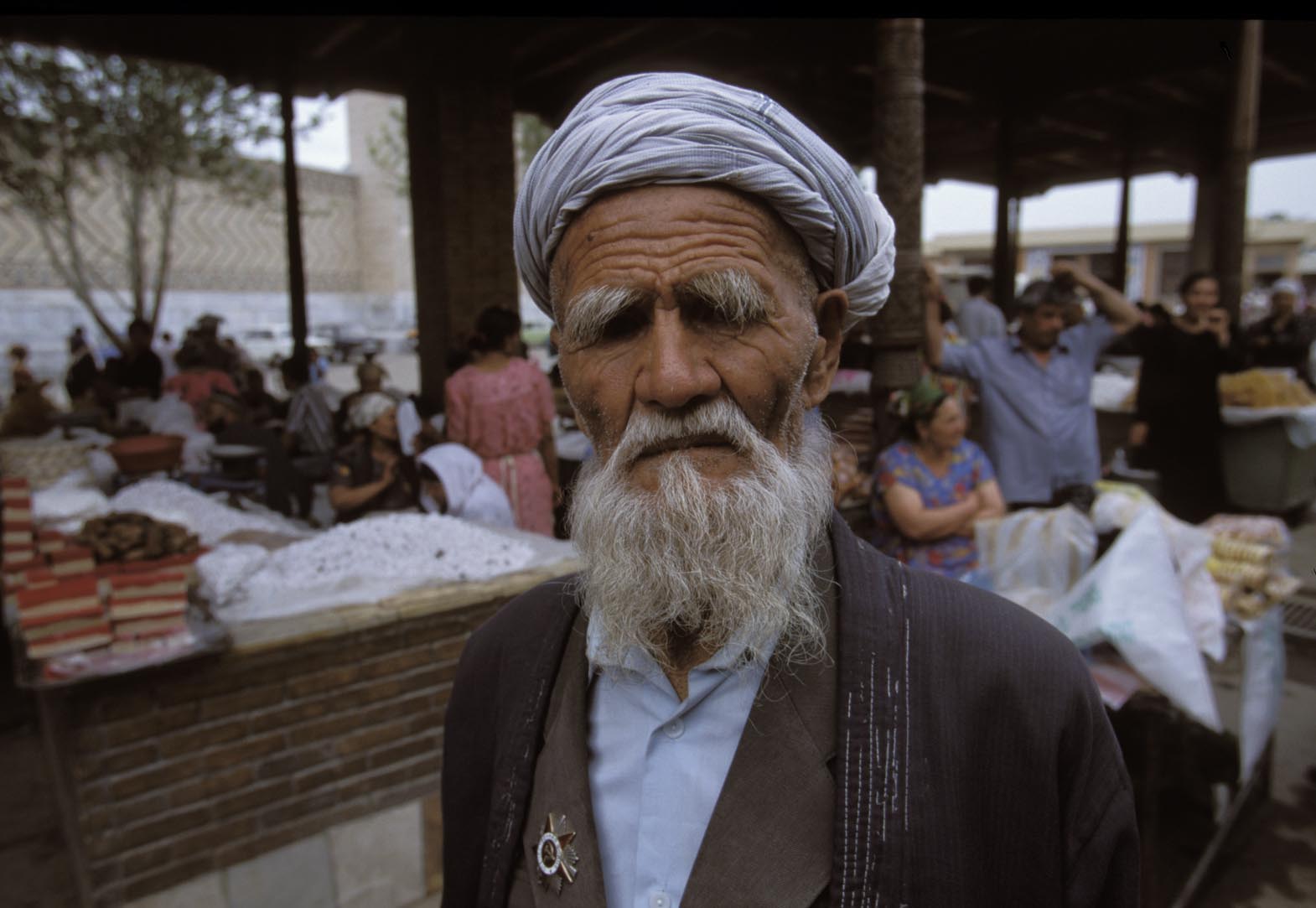
KABUL, Afghanistan (BP)–Pakistani police fired shots to control thousands of Afghan refugees massing Sunday, Oct. 21, at the country’s border with Afghanistan. Aid workers project that as many as 1.7 million refugees from Afghanistan and surrounding countries are flooding toward Pakistan, fleeing the war and the worst drought in 30 years.
No aid agencies are able to work inside Afghanistan and all surrounding countries have closed their borders, setting the stage for a humanitarian disaster of horrifying proportions, aid workers say.
Heightening the urgency for Southern Baptist workers, of course, is the fact that virtually none of the refugees whose lives are in danger has heard the good news of forgiveness and salvation in Jesus Christ.
As conditions in the region change, however, Southern Baptists will have tremendous opportunities to share the good news of God’s love and minister to people in crisis.
DIRE STRAITS
Afghanistan is a place where in a “good” year only one in four children dies before the age of 5 and the average person survives only 44 years. Factor in a four-year famine and 20 years of political turmoil, and you have a country in such terrible condition that people are forced to feed on stubby grass and locusts.
Lakes have evaporated, leaving cracked valleys of mud. Emaciated animals, the few to escape slaughter, stumble about in search of brittle sticks of grass.
Before the events of Sept. 11 sent Afghanistan into an even deeper downward spiral, Afghans already were suffering in dire economic and political conditions.
“Afghanistan has two wheat harvests,” explained a worker who is focused on an unreached people group in Afghanistan. “[From] the first harvest they were able to get a little bit because of the snowfall in the winter. The second wheat harvest for this year [yielded] next to nothing.”
The World Food Program estimates that as many as 6 million Afghans rely on food aid for survival.
20 YEARS OF WAR
Political turmoil also has gripped Afghanistan for two decades. First came the Soviet invasion, which Afghan factions eventually defeated with help from the United States. The factions then spent the next 10 years fighting each other for control of the maimed country. By the late ’90s the Taliban emerged as the strongest army.
After gaining control of more than 95 percent of the country, the Taliban set out to purge Afghanistan of its Western trappings and to establish their version of an ideal Islamic state. Women were stripped of their freedoms. Crimes against Islam were declared punishable by death. And “holy war” was waged against enemies of Allah.
The famine and violence have forced millions of Afghans to flee to Pakistan and Iran for refuge. Millions more have been displaced from their homes and trapped within Afghanistan’s borders.
Whole families of refugees live in tents no more than 3.5 feet square. They sleep on the ground with no blankets or protection from the brutal winters.
Last winter, desperate parents dug holes in the ground, placed their children in the holes and laid on top of them to give their children a slight respite from frigid temperatures. And usually there is no running water or sewage system.
“As far as humanitarian aid work, you name it, you could do it,” said the Christian worker. “It just shows the immense need that is there.”
MILLIONS HAVE NEVER HEARD
But as bleak as physical conditions seem, the spiritual situation of the Afghan people is even worse. While the United Nations rushes to distribute tons of food and warm clothing to Afghanistan’s destitute, the country is closed to missions agencies that could fill the spiritual void in people’s hearts.
According to Operation World, Afghanistan’s 26.7 million people are divided among 70 people groups. The vast majority practice Islam and will die without ever hearing the good news of Jesus Christ. Of the 10 largest people groups in Afghanistan, only four have Scriptures portions available in their language.
One example are the Taimanis, one of the largest people groups in Afghanistan and also one of the most unreached. With no access to the Bible, the “Jesus” film or Christian broadcasts in their language, at least 96 percent of the people have not heard the gospel. There are no known Christians among them and no mission agencies working with their 480,100 people.
Pashtuns, Afghanistan’s most numerous people group, have a greater chance of encountering the gospel than any other group in Afghanistan. The Jesus film and Christian broadcasts are available in Pashtu, their heart language. But Pashtuns have yet to read the Scriptures in their own language. Only 35 percent of the 12.9 million Pashtuns have heard the gospel.
Afghans are suffering, but they continue to display the hospitality and generosity for which they are known.
“Our helper, who lived with us, helped us with manual labor and yet had eight children at home,” said the Christian worker. “He gave us his only rooster for Christmas when he found out how important a holiday it was for us. That was the only livestock or poultry they had, yet he willingly gave it to us.”
Workers ask Southern Baptists to pray specifically that the few Afghan believers still in the country will have opportunities to share God’s love with other Afghans who are suffering and dying.
Southern Baptists interested in aiding International Mission Board relief work in Afghanistan also can contribute to the IMB’s general relief fund and designate their gifts for Afghanistan. Every dollar given will be used 100 percent for Afghanistan relief.
“The funds will not only be used to help people with their physical needs, but it will also create an opportunity for people like us to be among them, help them and share with them,” the worker said.
Contributions can be sent to International Mission Board, General Relief Fund – Afghanistan, P.O. Box 6767, Richmond, VA 23230. Contributions to Project No. “GRF – Afghanistan” can be made online at https://www.imb.org/development/givetoform.htm.
–30–
Mark Kelly contributed to this article.
— For information about how you and your church can help, visit www.imb.org/hope, where you will find the latest news, photos, videos, as well as free resources and an online giving opportunity.
— North American Mission Board “Belief Bulletin” on Islam:
www.namb.net/root/resources/beliefbulletins/religions/islam.asp.
— “The Cross or the Crescent” resource kit:
www.namb.net/enews/closeout/cross_crescent.htm.
— What is God telling you — or doing in your life — in the wake of Sept. 11? How do you think world-hearted Christians should respond? How should we pray? What should we do? Share your thoughts at https://www.imb.org/forum.
— Learn more about efforts to take the gospel to Afghanistan’s unreached at www.imb.org/missionaries/PeopleGroups/hazara.htm, www.afghanoutreachproject.com,
www.peopleteams.org/afghans,
www.ad2000.org/peoples/jpcxAFG.htm.
— Learn how you can help fight hunger:
www.erlc.com/Hunger/hunger.htm.





















